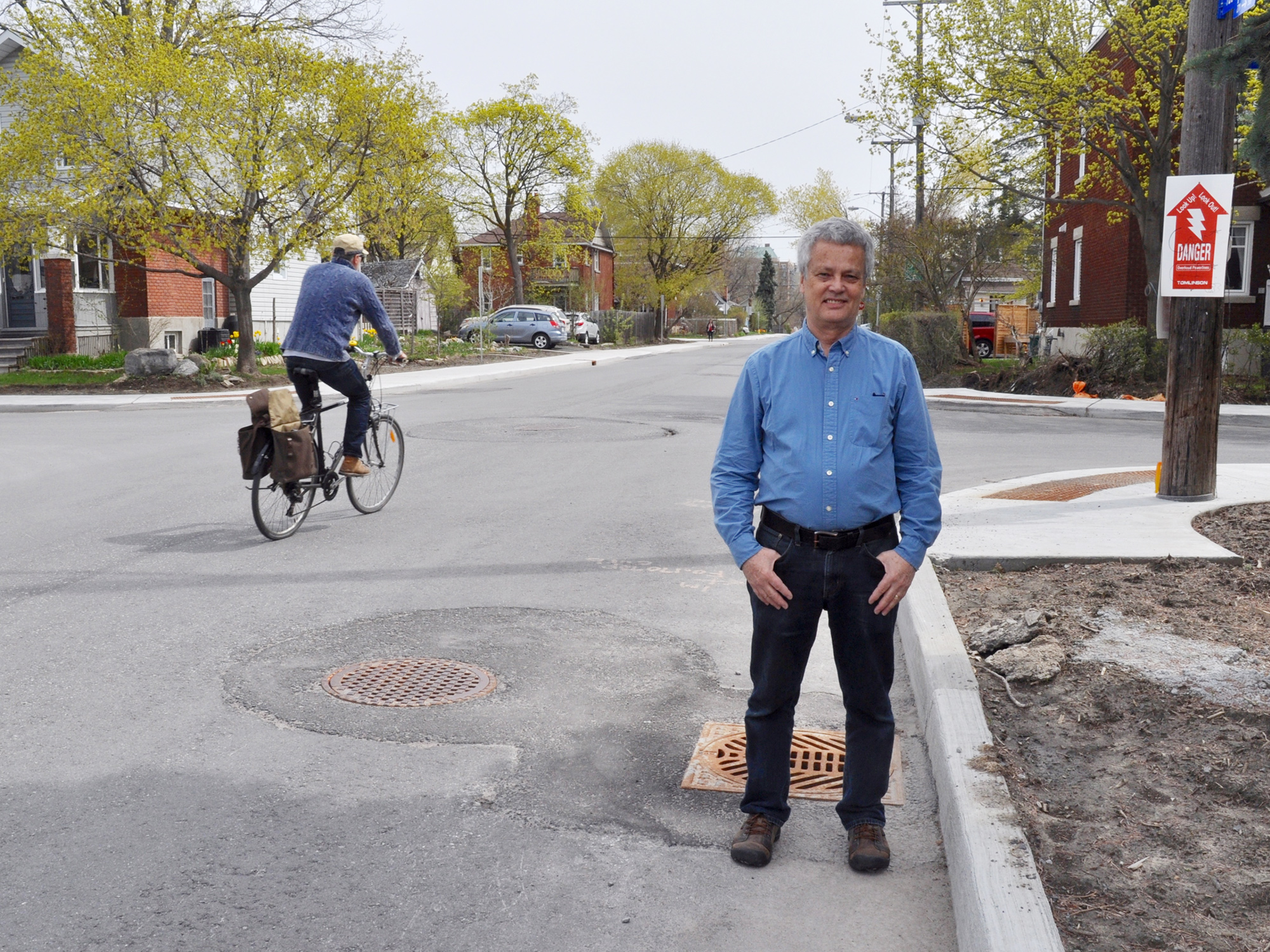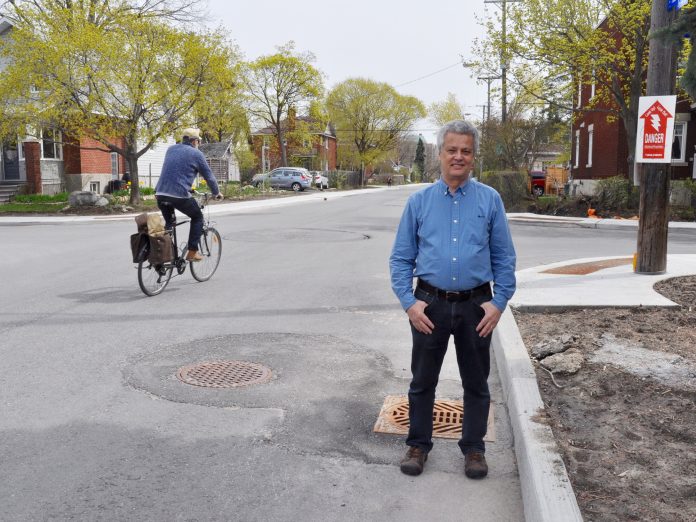Submitted by Ron Elliott –
On April 25, Councillor Jeff Leiper dropped his proposal to the City of Ottawa to ban on-street parking in favour of bicycle lanes on the stretch of Spencer Street from Western Avenue to Holland Avenue in Wellington Village. The decision not to proceed with the proposed changes constituted a victory for a group of residents who live on or near Spencer, some area businesses and people who attend the Ottawa Mosque who appreciate the 97 parking spots that would have been lost.

Our fight was never primarily about parking spots, though. And it certainly wasn’t born out of animosity towards cyclists and safe cycling infrastructure.
The great majority of us who live along this stretch of road strongly believe that the particular proposal the Councillor was championing was ill-conceived and would have negatively affected many more people than it could possibly have benefited. Unfortunately, we were never consulted or our views given a proper airing. Most of us never even knew the changes were being contemplated until a petition began to circulate last November after they’d already been approved for implementation.
It is a peculiarity of those seven blocks of residential neighbourhood that only four houses on it actually have Spencer Street addresses. The rest are on corner lots and have addresses that indicate on city lists they are on one of the six cross-streets. But they are clearly on Spencer to all intents and purposes. They have side doors, laneways, garages, some even have front doors facing Spencer.
Yet it appears that this peculiarity of the neighbourhood may be the main reason no one in any of the 30-odd houses bordering Spencer was ever even informed of the changes, let alone consulted about them. Councillor Leiper felt it was “to be expected” that the people who live in the four houses with Spencer Street addresses would oppose his proposal (or so he wrote to me) and decided along with city officials that they had enough feedback from the community in support of the proposal to proceed with it for the whole 600- metre stretch, without consulting anyone on the street at all.
Councillor Leiper’ support came entirely from his personal networks and the Wellington Village Community Association (WVCA) and local Business Improvement Association (WWBIA). But the WVCA never followed up on a promise it made to canvass the community of Wellington Village on the issue in the spring of 2016, and the WWBIA failed to consult with the businesses along Wellington Street that had the most to lose from the removal of 97 parking spots close to their places of business. The impression of community support, as Councillor Leiper eventually learned, was an illusion.
In the two weeks prior to Councillor Leiper announcing his change of direction, a group of us who live on and near Spencer talked to more people in the neighbourhood and did so more systematically than anyone else had done in the previous year. We found a rate of people in the immediate area of Spencer Street opposed to the parking ban and introduction of bicycle lanes closer to 85% than the 55% Councillor Leiper cites on his website. A CTV poll corresponded quite well to our findings, with 607 against and 115 for, or 86% versus 16%.
The members of our ad-hoc community group do not share all the same reasons for opposing the proposed parking ban and bicycle lanes. Personally, I worried about what would happen to all the kids on scooters and roller blades and joggers and cyclists riding side-by-side on weekends. What we all agree on is that this stretch of Spencer Street is a great asset to the community as it is, and the process that almost resulted in the imposition of “sub-standard,” 1.2 metre bicycle lanes, was deeply flawed.
Ron Elliott,
for the Spencer Street Community Network
